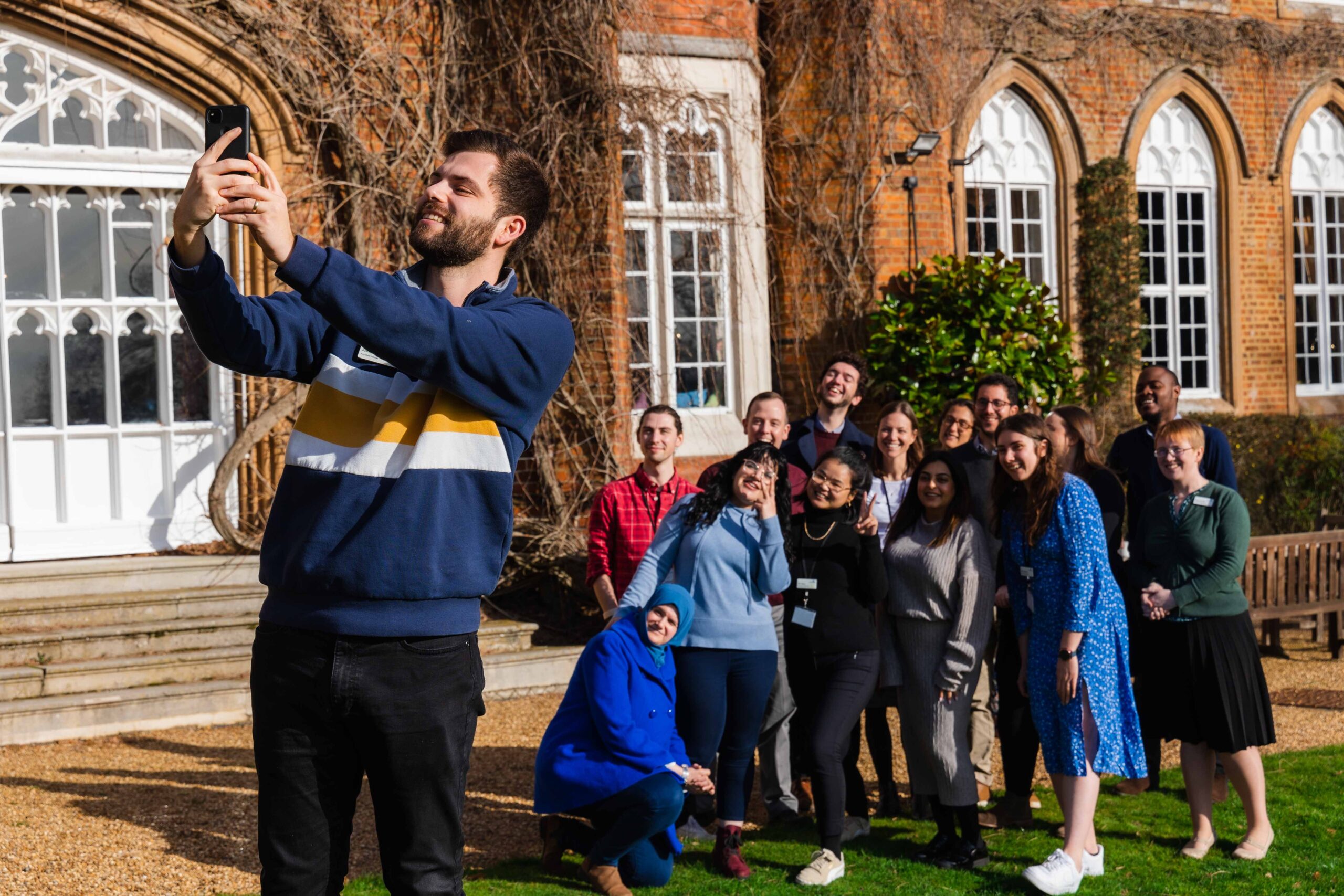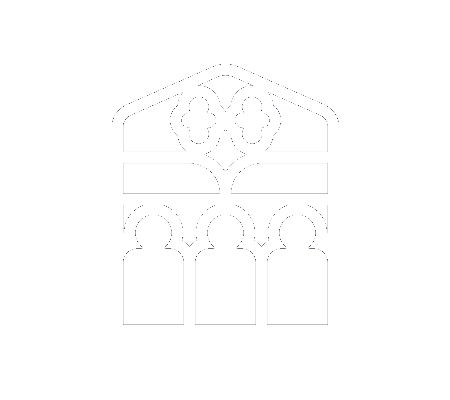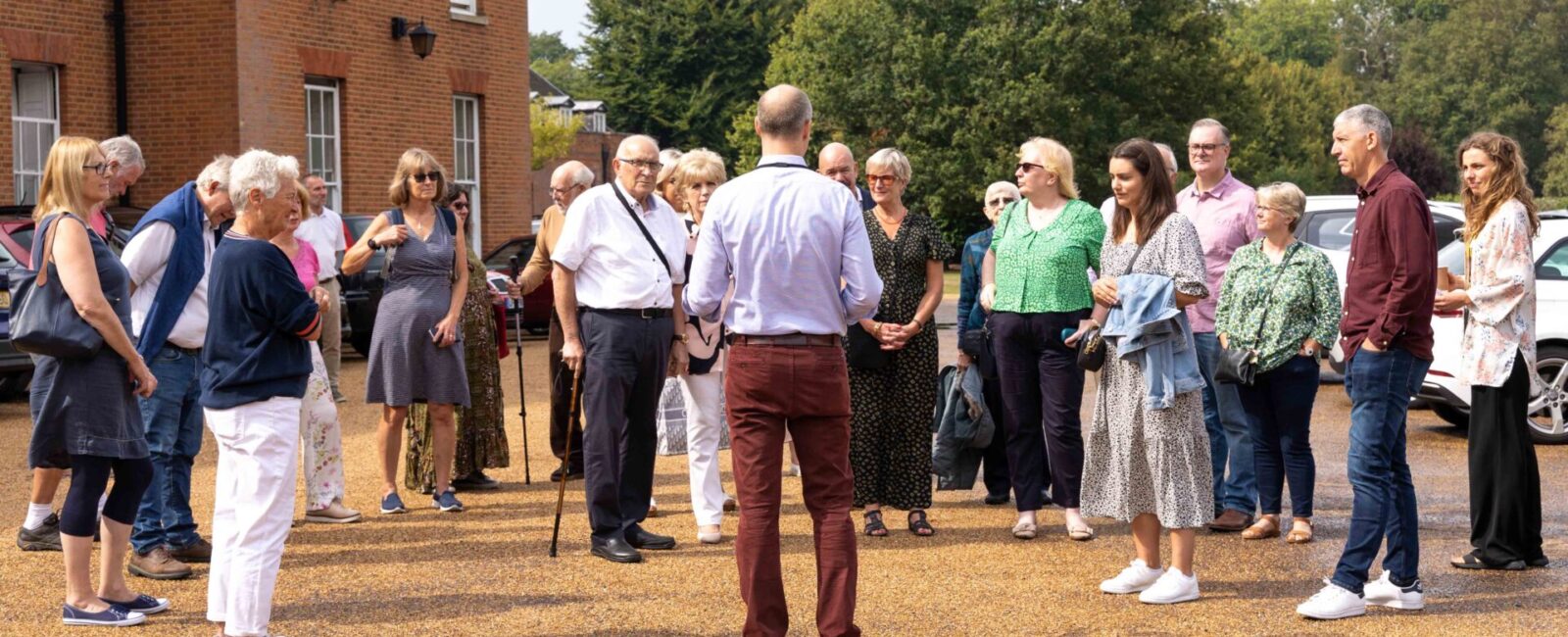Regardless of what type of business you’re running, your success massively depends on the strength and synergy of your team. If you wish to enhance your team’s productivity, foster innovation, and ensure sustainable growth, then it’s essential that you provide effective team development.
Cumberland Lodge has been the location of a number of team-building retreats over the years, so we’re no strangers to the power of quality team development. We’re based in the breathtaking Windsor Great Park, which is an equally remote and accessible location, meaning we can provide the best of both worlds.
In addition to our stunning setting, Cumberland Lodge is a 17th-century building that boasts hundreds of years of heritage. In fact, it has been home to a number of notable figures over time. What’s more, as a social enterprise with a primary focus on education, hiring one of our spaces allows you to support a charitable mission. With your help, we invest in the development of young people as ethical leaders of the future.
While we don’t actively run team development programmes, we believe that our setting is among the best for you to host them. We invite you to discover more about the importance and benefits of team development below.

What is team development?
Team development is all about boosting a team’s efficiency, effectiveness, and overall performance. It can encompass a series of activities and interventions that are intended to bolster team dynamics, communication, collaboration, and problem-solving abilities. The purpose of team development is to create a cohesive unit that can collaborate effectively to achieve the shared goal of the company. Effective collaboration involves identifying individual strengths and weaknesses and employing these to achieve the best results.
Team development methods
Team development can take the form of many methods, and these all work to address the unique requirements and objectives of the team:
Team-building exercises – From ice breakers to trust-building tasks, these exercises work to boost interpersonal relationships, build trust, and enhance collaboration among team members.
Workshops and training programmes – Communication, conflict resolution, leadership, and time management are just some of the skills that can be worked on in workshops and training programmes.
Team retreats – Retreats allow team members to give themselves some distance from their typical work environment. During this time, they can partake in activities that encourage bonding and strategic thinking,
Coaching and mentoring – With the provision of tailored guidance and support, team members are facilitated in their ability to develop their skills, overcome challenges, and grow on a personal and professional level.
Phases of team development
Generally speaking, team development follows a series of phases, which are commonly referred to as ‘Tuckman’s stages of group development’:
- Forming – The first phase is to get team members acquainted with one another and with the overarching goals.
- Storming – Naturally, differing opinions and work styles can lead to conflicts and disagreements. Therefore, this phase allows companies to address issues and establish norms.
- Norming – Following the inevitable conflicts, team members work to resolve these, which puts norms and roles in place. This leads to a stronger sense of cohesion and collaboration.
- Performing – Eventually, the team will reach a level of maturity and functionality, which allows them to work efficiently towards the common goal. Once they have this trust and interdependence, it becomes much easier to tackle challenges.
- Adjourning – Last but not least, the team is able to complete its objectives and disband. This phase involves reflection, the celebration of achievements, and planning for future endeavours.

Strategies for team development
With effective strategies, teams are able to boost their development and guarantee long-term success:
Clear goals and objectives – Clear and measurable goals work to provide the team with a shared purpose and direction. Every member must have a clear understanding of their role in achieving this overarching objective.
Effective communication – You can’t underestimate the power of open, honest, and respectful communication. This means making effective use of channels and tools to make important information available to everyone and keep everyone on the same page.
Role clarity and delegation – It’s essential that everyone understands what their roles and responsibilities are, as this works to prevent confusion and overlap. Individual tasks can be determined via the strengths and expertise of each person.
Continuous learning and development – Opportunities for learning and professional growth work to promote a culture of continuous improvement.
Why is team development important?
The importance of team development should never be understated; discover some of the key reasons why it’s crucial to invest in team development below:
Enhanced productivity – There’s no denying the fact that well-developed teams work more efficiently, as every team member’s strengths can be leveraged. Naturally, this results in higher productivity and better results.
Improved communication – Open and transparent communication is a given for well-developed teams. This vital quality works to reduce misunderstandings and promote a collaborative work environment.
Increased innovation – If a team is able to communicate well and trust one another, this encourages the sharing of ideas. This contributes to their ability to collaborate, which results in more innovative solutions and approaches.
Higher employee engagement – When your team members feel as though they belong to a cohesive unit, this makes them feel more valued and supported. This then leads to boosted job satisfaction, which reduces turnover and attracts top talent.

Discover the importance of team development with Cumberland Lodge
As previously mentioned, Cumberland Lodge has been the setting of many team development retreats in its time. If you’re looking to host a team development programme, you can learn more about our buildings and facilities here or get in touch for more information regarding the booking process.

